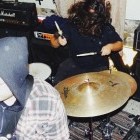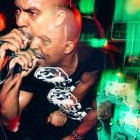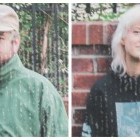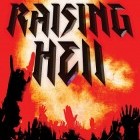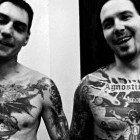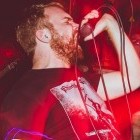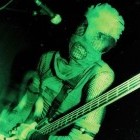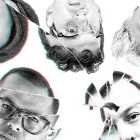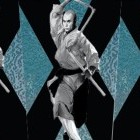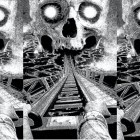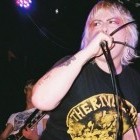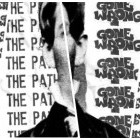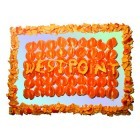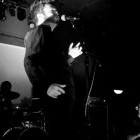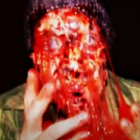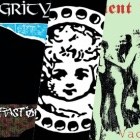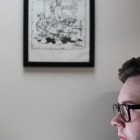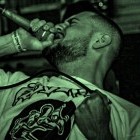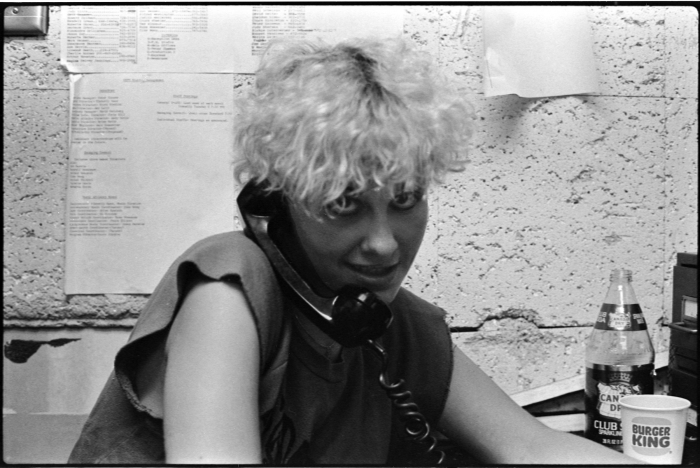
I’ll admit that I don’t know any other high school English teachers in Boston, but I would bet money that Nancy Barile is the coolest one.
For the past few years on Instagram Ms. Barile, as she’s known to her students, has shared classic tales and pics from early '80s hardcore shows in Philadelphia that she either promoted or attended.
Thankfully, she decided to turn her memories of the early days of hardcore and more importantly, how they helped shape her life, into a new book, I’m Not Holding Your Coat: My Bruises-and-All Memoir of Punk Rock Rebellion.
Issued by Bazillion Points, the book features an introduction from Ian MacKaye, with whom she has remained friendly since 1982.
One of the things I enjoyed most about your book was how you repeatedly touch on the idea of “OK, this thing that I did or still do today was inspired by something I learned from the punk scene,” or “This is one of the reasons that period of my life is important to me.”
How did your awareness that this period of your life and the experiences that you had, and the fun that you had becoming such a driving force of who you are, lead you to write this book?
At some point, I had to say to myself, why am I still talking about hardcore 38 years later, and punk rock? Why am I still doing that? You know, I've gone on. I've had a career, I'm married. I've done other things in my life. Why do I always go back to this?
And so, that's when I kind of realized, OK, besides seeing and hearing some incredible, incredible music, that hardcore and punk rock was super empowering to me as a woman. It taught me about the world. I kind of grew up pretty sheltered.
I went to a private school, a Catholic school. Not a lot of diversity at my school at all. So, I learned so much through punk rock. It made me really strong and resilient. And willing to stand up for what I believed in.
And you know, I learned to come at authority if I thought they were hurting me, somebody in my neighborhood, somebody in front of me in line at the checkout. And then, I made incredible, incredible friends that I'm still friends with after all these years.
So, as a combination of all those things, I was like, this was a really powerful counterculture movement that is still impacting me today. So that's kind of why I wanted to write the book. I also wanted to write the book because I felt that the women's voices were being silence and the narrative was being changed.
I'd often post in punk and hardcore Facebook groups, and some guy born in 1985 would contradict or correct or refuse what I was saying at a show that I was at.
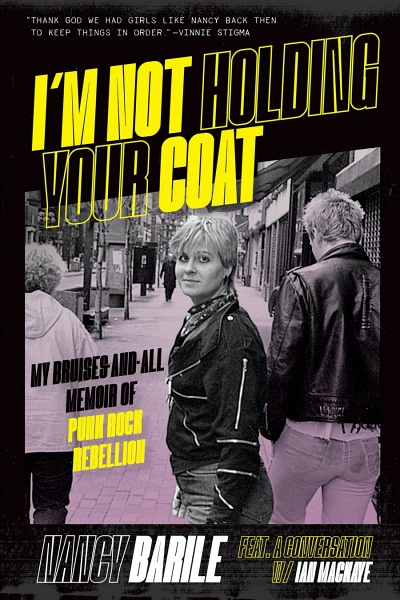
I’m glad you made that point, because I wanted to ask you about sexism. I would have though the early punk days would have been rife with sexism, but you make the opposite point in the book. As does Ian MacKaye in the foreword, about how he’s always surprised that people are surprised about the involvement of women.
You know, that was my experience, and I know my experience isn't universal any my role was tiny. But my experience was that as a woman, it was super empowering. And so, a lot of that had to do with Philadelphia.
Philadelphia was a really open-minded, accepting place, you know, and there were a lot of strong females in that scene. And so, we fed off of each other. And then the men were respectful and protective, and fun to be around. And so, you know, I was very lucky in that.
It definitely empowered me as a woman more than anything. Because we were up front, and we were on the stages, and we were behind the scenes, and we were managing the bands or writing the fanzines. And we were there.
We were smaller in number, but we were mighty. So, it was not my peers, it’s people who came way after [who somehow erased or challenge the involvement of women in the early punk/hardcore scene].
I’ll go on Instagram and put a picture up of SS Decontrol playing at Irving Plaza, and some guy comes at me, it's like, "That's not Irving Plaza." Well, Irving Plaza's been remodeled several times since 1982, you know. But I was at the show, and don't tell me that it wasn't there. Do not tell me what I saw with my own eyes. I’m going to tell you what I witnessed.
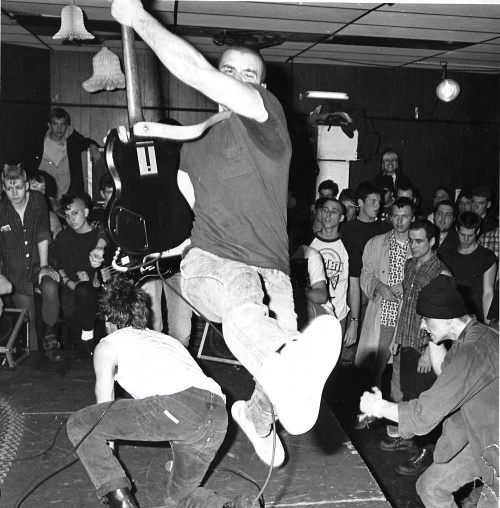
I also identified with the way you describe being terrified by violence at shows and yet not being able to wait to do it all again the next weekend.
Yeah, and that's how I felt. It was always first about the music. And Ian kind of said that in the conversation that I had with him. He said when you hear elders talking about walking through snow to get to school, what’s important isn’t the walk. It’s the school.
And so, that's kind of like to me, the stories, the chaos, of course, you remember them. You remember bombs being thrown at you. You remember cops attacking you.
But the main thing was that the music was so important to us, and when you look at where that music went and all the different tentacles out there, and all the power that it has even to this moment, you can see why we were so invested in it, and so willing to literally risk our lives to take part in it.
So, I mean to me, the music was always the thing that came first. And then, you know, it was that incredible scene of people that came from such diverse backgrounds. And I was enriched from knowing them.
One of the kids that used to hang out down in Philly was a Vietnamese refugee named Long Van Mai. He was a punk, but his story was so unique and different. And my life was enhanced from my friendship from him.
So, I thought that was really powerful part of punk and hardcore, too. In the town where I grew up [Norristown, PA] everybody's mother and father were sort of kind of this cut from the same cloth more or less, you know. So, it was cool to meet these people that had different kinds of experiences when they were growing up. It just widened my world. It made me see things differently.
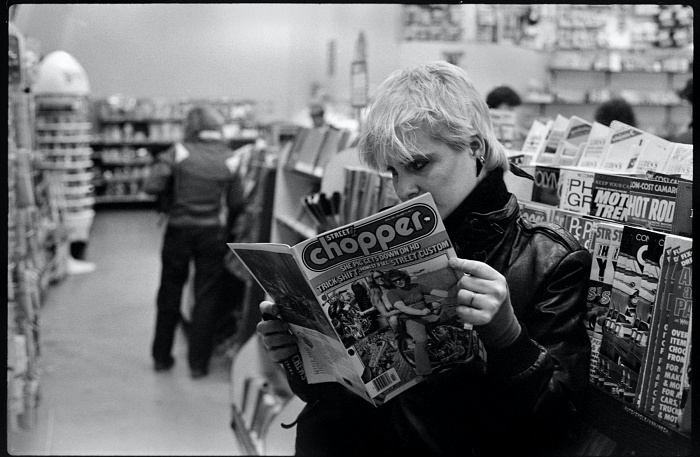
When you were involved in the early, burgeoning punk and hardcore scenes or movement, is that something that would have occurred to you as still going on today? I am quite out of touch with a lot of newer bands, but I love the fact there are still kids booking underground shows in independent spaces and what have you.
Absolutely not. Yeah, no. If you told me that Iggy Pop would be in a commercial, or that people knew what a mosh pit was, you know, that all these words from our scene would became part of the modern lexicon, I wouldn't have believed you.
Or if you would have told me that some of the music would be on TV, or even bands like Nirvana and Soundgarden and Pearl Jam would site SS Decontrol as an influence.
Nearly 30 years later I can clearly picture Krist from Nirvana wearing an SSD shirt on MTV while knocking himself down with his own thrown bass.
Yeah, I help run the Instagram page for SS Decontrol, and if you would have told me they'd have so many followers (16,000) it would seem ridiculous. The band broke up in 1985 and their records were not repressed.
Another thing about the whole punk and hardcore movement in the years that I was in, I very much lived in the moment, and I was very present. And I don't think I really thought, "Oh, I wonder if this will still be around in so many years?" It was just an immediacy that I loved. That I'm here right now, and I'm experiencing this. And it's awesome.
So, it just kind of blows my mind that people still go back to that. And I think that's a testament to the music and the scene, and to the people that created it. That it's still pumping out and churning out. And I think that's really cool.
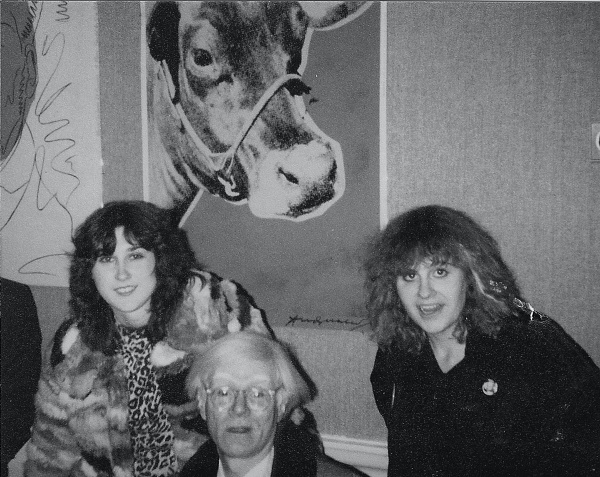
What do you make of how technology has made it so much easier for kids to hear new bands? Sometimes I think having everything at our fingertips has devalued things. I used to get a new record or CD and listen to it and pore over the liner notes looking for other bands that were mentioned and then maybe try to check them out. I imagine you did the same.
Yep! Or maybe you heard it on a particular radio station. But you would send money away, you would wait for that record to come, or the CD, or whatever it is, and that was it. Or, someone would make you a mix tape.
When you used to get an album back in the day, you listened to it both sides, because you kind of had to, right? Because you put the needle down, and it had to play straight through. So, that kind of introduced me, especially somebody who loved Bowie and Lou Reed and bands like that in my early days, it introduced me to when they explored different kinds of music.
But then, I look at the fact that these kids have music so incredibly accessible to them all the time, and they can take it with them.
I remember, so when you used to go see a band back in the day, if the show started at 8:00 and there were five bands, you got there at 8:00 and you would see all five bands. And so, you got introduced to all the different kinds of music. I used to love that when I'd see bands that were opening acts for other bands. That's how I'd get to know more music.
My husband [SSD guitarist Al Barile] started a band in 1995, and I noticed right away people only came for the band they wanted to see. And so, if you headlined sometimes, that might not have been the best position to be in, because only your crowd came and whatever. And I was like, man, these kids are missing out.
That's how you got to see new bands, because they opened up for people.
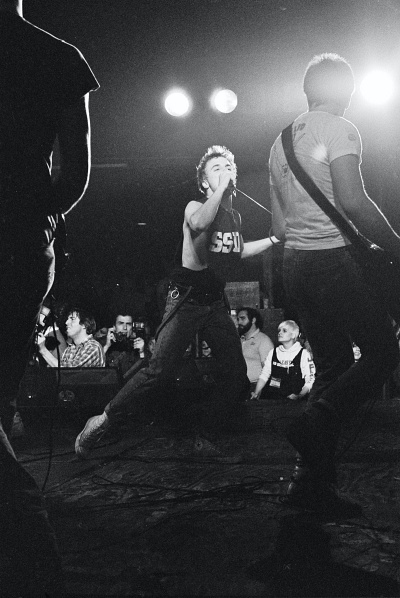
Being from Philadelphia, your book was very appealing to me, as has been your Instagram feed and memories, but I will admit since I got involved in the early 1990s, that I am woefully ignorant of a lot of the stuff that happened in Philly a decade earlier.
I don't think Philly ever got their due. And I think a part of that is because the kids that were in bands in Philly didn't have a ton of money. They didn't tour like other bands. Some actually later, maybe like Ruin and stuff did.
We were living hand to mouth back in the Sadistic Exploits [a punk band Nancy managed in the '80s] days and stuff. We were lucky if we could get it together to get up to CBGB’s and borrow some equipment and carry some stuff up in a station wagon.
But Philly was a really vibrant spot for bands to stop and play. And all the bands came through there from Iggy Pop to Patty Smith, to Black Flag and Minor Threat and SS Decontrol and TSOL. And you know, Killing Joke and Siouxsie and the Banshees, Bauhaus.
And we had a lot of cool venues, you know, where people could play. They seemed to keep popping up. When one would burn down or close, another one would pop up.
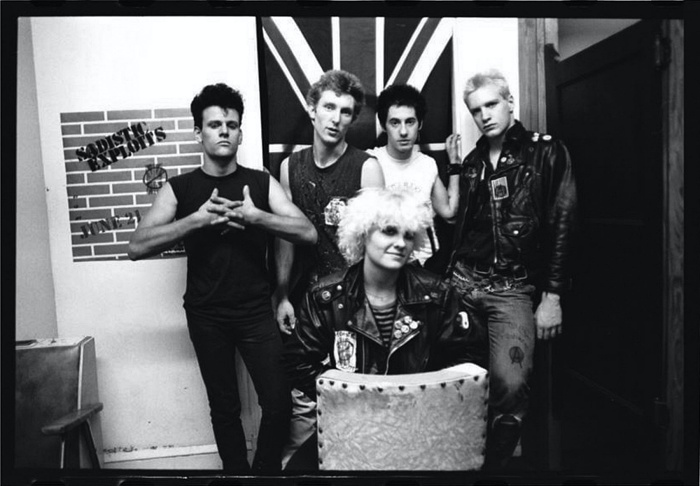
So, if you had to do a stream of consciousness shout out to a few Philly bands people may not have heard, that they may want to try and check out.
Ruin, YDI, Flag of Democracy. Let’s see. You know I don’t want to leavy anybody out because you know you’re going to get me in trouble now. McRad. Autistic Behavior, Stickmen. Decontrol. Sadistic Exploits. The Proteens, Informed Sources, Crib Death, Little Gentlemen.
Some of these groups you can find on Spotify, some you can find on YouTube.
And some, I’m sure, sadly, you can’t find at all. Do you try to keep up with modern hardcore and punk? What do you generally listen to now?
Sometimes my students will be like “Barile, you gotta listen to this,” but my kids are mostly all into hip-hop and techno. So to be perfectly honest, my playlist on my phone is all old stuff. Probably the latest band I have kept up with is Rage Against the Machine or something.
A kid turned me on to Matisyahu. Right after the 2016 election, my kids who would be profoundly affected by the new president, were devastated. It was a lot of sadness from many of the kids. So we decided we were going to sing that song “One Day,” by Matisyahu and it was a really nice moment.
[But as far as punk] I thought after the election, well, you know what? One good thing that's going to come out of this is, it's going to be a lot of good music in response.
There's going to be a lot of rebellion, and we're going to see it in the music and the art. The same way we saw it in the '70's and '80's. And I don't see it, but I might not be privy to that world as an old woman. Like, that probably exists in other people's worlds, and I hope it does. I'm praying that it does, that kind of the music of rebellion and anger and change.
I hope it is out there. And that somebody's doing it. I'm not supposed to see it. I'm not supposed to be part of it. That's a youth movement.
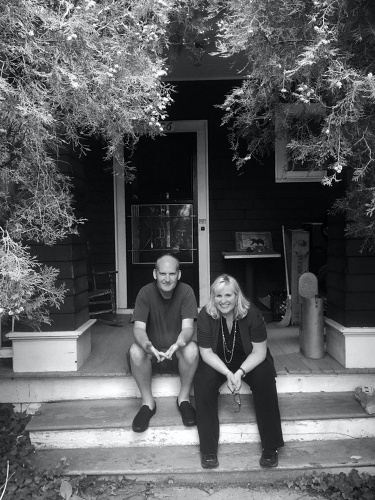
***
I’m Not Holding Your Coat: My Bruises-and-All Memoir of Punk Rock Rebellion will be out soon via Bazillion Points, and can be pre-ordered from Amazon, or directly from the publisher.
***
No Echo has launched a Patreon with 3 tiers offering all kinds of hardcore-related goodies to help support the site:
***
Tagged: ssd

